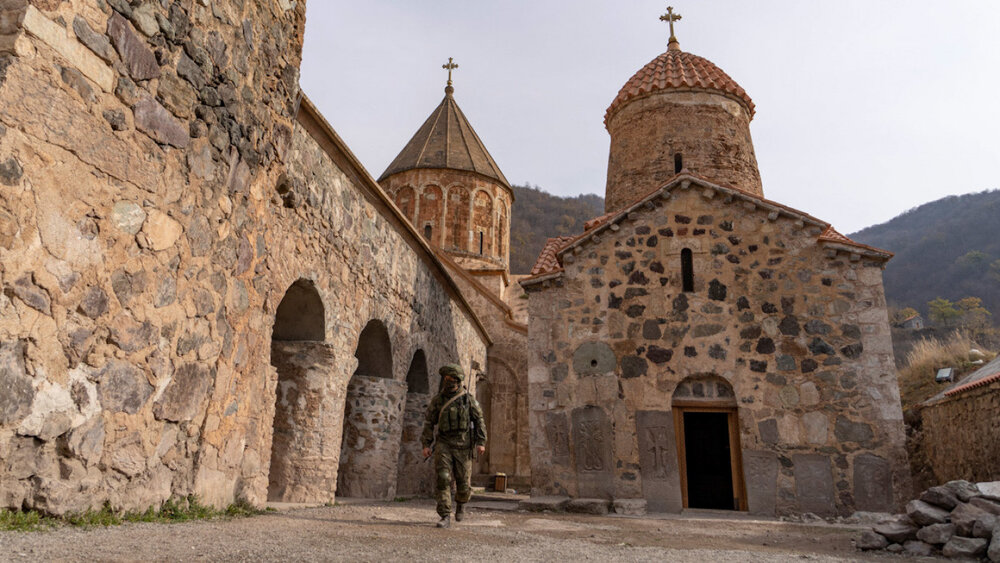Iranian province says ready to help restore cultural heritage in war-torn Karabakh

TEHRAN – Tourism chief of Iran’s East Azarbaijan said on Monday the province could soon start restoration of cultural heritage sites and monuments in the Nagorno-Karabakh region of the Republic of Azerbaijan.
“Recently, a request was sent by the government of the Republic of Azerbaijan to the [Iranian] Ministry of Foreign Affairs, which was redirected to the Ministry of Cultural Heritage, Tourism and Handicrafts of the Islamic Republic of Iran to assist in the reconstruction, restoration and improvement of historical monuments in the liberated areas,” IRNA quoted Ahmad Hamzehzadeh as saying on Monday.
“Cultural heritage experts and restorers in East Azerbaijan are ready to be dispatched to these areas,” the official said.
“Having highly experienced and skilled teams of cultural heritage professionals, East Azarbaijan has a very high capacity to help the friend and neighboring country of Azerbaijan to restore, rebuild and even re-design and monitor the destroyed historical monuments in the Nagorno-Karabakh region.”
The official noted that the presence and participation of East Azarbaijan’s experts in the restoration of historical monuments in the liberated areas of the Republic of Azerbaijan is subject to the decision of the Ministry of Cultural Heritage, Handicrafts and Tourism.
Nagorno-Karabakh is a disputed territory, internationally recognized as part of Azerbaijan, but its population is majority Armenian.
The Nagorno-Karabakh region is one of four frozen conflicts that emerged after the collapse of the Soviet Union. Legally recognized as a part of Azerbaijan, it declared independence in 1991 and then defended that independence in a war with Azerbaijan that lasted until 1994. While it enjoys no international recognition of sovereignty, Nagorno-Karabakh has been de facto independent since its declaration and has been supported militarily and economically by neighboring Armenia.
On 27 September 2020, a new war erupted in Nagorno-Karabakh and the surrounding territories, which saw both the armed forces of Azerbaijan and Armenia report military and civilian casualties. Azerbaijan made significant gains during the war, regaining most of the occupied territories surrounding Nagorno-Karabakh and large parts of Nagorno-Karabakh, including the culturally significant city of Shusha. The war ended on November 10, 2020, when a trilateral ceasefire agreement was signed between Azerbaijan, Armenia, and Russia, which forced Armenia to return all the remaining occupied territories surrounding Nagorno-Karabakh.
AFM/
